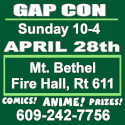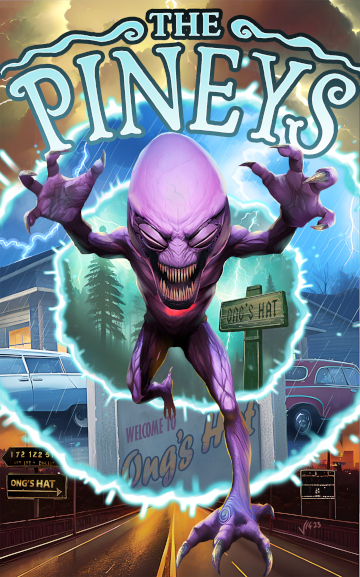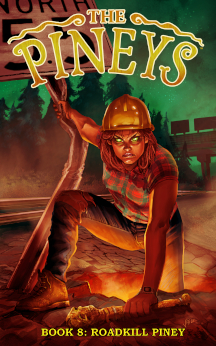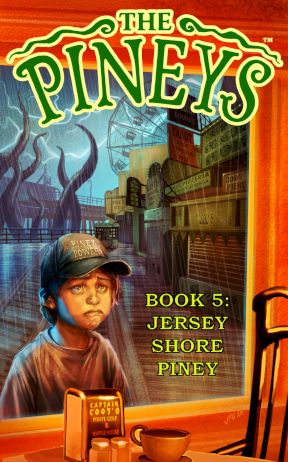Life Skills for Fanboys: Shopping at the Con
on May 19, 2014 at 12:01 am Life Skills for Fanboys: Shopping at the Con
written by Tony DiGerolamo, Copyright 2014
To further my goal of helping fellow fanboys, I have included an index of links of previous columns with their topics. Don’t take it personal, I’m just trying to help. Previous columns are indexed at the end.
You Need Something
Conventions often have plenty of merch for sale. For comic book conventions, that’s usually the thrust of the show: old and hard to find comics. But how do you get the best deal at a show? Just a few tips from my days on the con floor.
Sizing up Your Seller
In previous columns, I’ve talked about how to sell and size up fans. But how do you size up a guy who is selling stuff at a con? Who he is and where he comes from will often dictate how great of a deal you can get.
Booth Size: The bigger the booth, the more money the guy has laid out. A large booth means the seller could have several, expensive hot ticket items for high rollers or that he has a huge store and is using it for promotion and to make sales. Smaller, cramped booths likely means the seller is part of the wave of roaming con sellers: Collectors that have no store or just an online one. Sales at the con are then his primary profit.
Local vs. Out of State: Local guys already know the lay of the land. Rarely, they have a deal. More likely, they know the local audience and cater their wares accordingly. However, the out of state guys not only have something different, they typically can save money by carrying less product back. I dumped all my inventory during a convention in Los Angeles because I didn’t want to mail it back home. It was a win-win for me and the fans.
Store vs. No Store: Guys with storefronts always have the option to take their merchandise back and sell it in the store, so forget about getting a deal on a big ticket item. Store owners aren’t going to dump a premium item just to get rid of it (unless it’s something insanely heavy, like the Batman bronze). He might be willing to part with just so he doesn’t have to load it back into the truck!
Guys with no stores make their money on the con floor. They wheel and deal. They have storage too, but if they’ve been sitting on something a while, they may let it go for a song to be rid of it.
New vs. Old: Old guys are more savvy, of course, but they’re also more jaded. If you know your stuff and don’t insult him with an offer, you might be able to shave some dollars off the sale price. New guys will be more risky, but they also tend to be more demanding. Their mood will largely depend upon how well they are doing at that particularly show.
Early vs. Late in the Con: A handful of dealers will let stuff go on the cheap early. Sometimes this is just to get the ball rolling, but other times it’s a savvy move to get the word out to the fanboys that there are good deals at that particularly table. Forget the middle of the show and especially Saturday. When there’s a million people on the floor throwing their money around, no one has time for a deal.
Typically, Sunday or the last day and hours of the show are the best. Desperation hangs in the air as dealers start to pack up early. Out of state guys are especially vulnerable at this stage if they did poorly. Making table (the cost of the table at the show) is paramount along with the other basic expenses. You can make pretty sweet deals on the floor in the waning minutes of the con. I’ve even seen guys in the parking lot make a few last minute sales.
Cash vs. Credit: Most dealers are going to have some capability to take credit cards, but cash is still king. If you’re buying a big ticket item in cash, don’t be afraid to ask for a small discount.
Inventory: If you’re shopping for a comic and the dealer you’re visiting has mostly toys, it is likely he’s not much of a comic book guy. Feel free to low ball him. He might be trying to unload his comics and you’d be doing him a favor. Although, conversely, a guy swimming in comics might let something go because he has too many. Most likely, however, a real comic book dealer has tons of product and knows his stuff.
Authentication: Buyer beware. Look, you can get all the certificates and signatures and coupons or whatever, but nothing authenticates a signature like getting it yourself. In the sports world, there’s a ridiculous amount of fake signatures floating around. Same thing in the world of collectibles. With the scanners they have now, almost anything can be faked. Even the dealer himself might not know, so be super aware of this before blowing your hard earned cash.
Other Tips
Be friendly and respectful, but not anxious. Be polite, but don’t let a dealer walk all over you. Unless the item you’re hunting for is particularly rare, don’t be afraid to check with rival dealers for a better price. Some people just have more of the stuff you’re looking for or just don’t care about it.
For a real flavor of what it’s like to be a con dealer, check out the graphic novel Dealers, by myself and Christian Beranek. It’s about toy dealers in the late 90’s and it will give you a real feel for what life is like on the other side of the table.
Until next time, see you at the con, fanboys.
Previous Columns
Obesity at Cons
The Art of Conversation
Grooming
The Line Between Fans and Pros
Geek Elitism
Convention Panels
Convention Volunteers
Food Gifts
Women and Cons
Get Your Room Party Together
Stop Bringing Your Kids to Cons
The Face of Geek Needs Work
Fixing the Face of Geek
Franchise Worship
Presenting Your Project
The New Image?
Stop Trying to Make Geek Cool
Rethinking the Comic Book Con
Zombie Stories Should Still Be About People
Geek Stereotypes and the Big Bang Theory
Con Locations
Traveling to Cons on the Cheap
Con Economics
Comics, Sexism and Trolling
Searching for the Words
How to Fix Comics? Stop Reading Them



























Comments are closed.